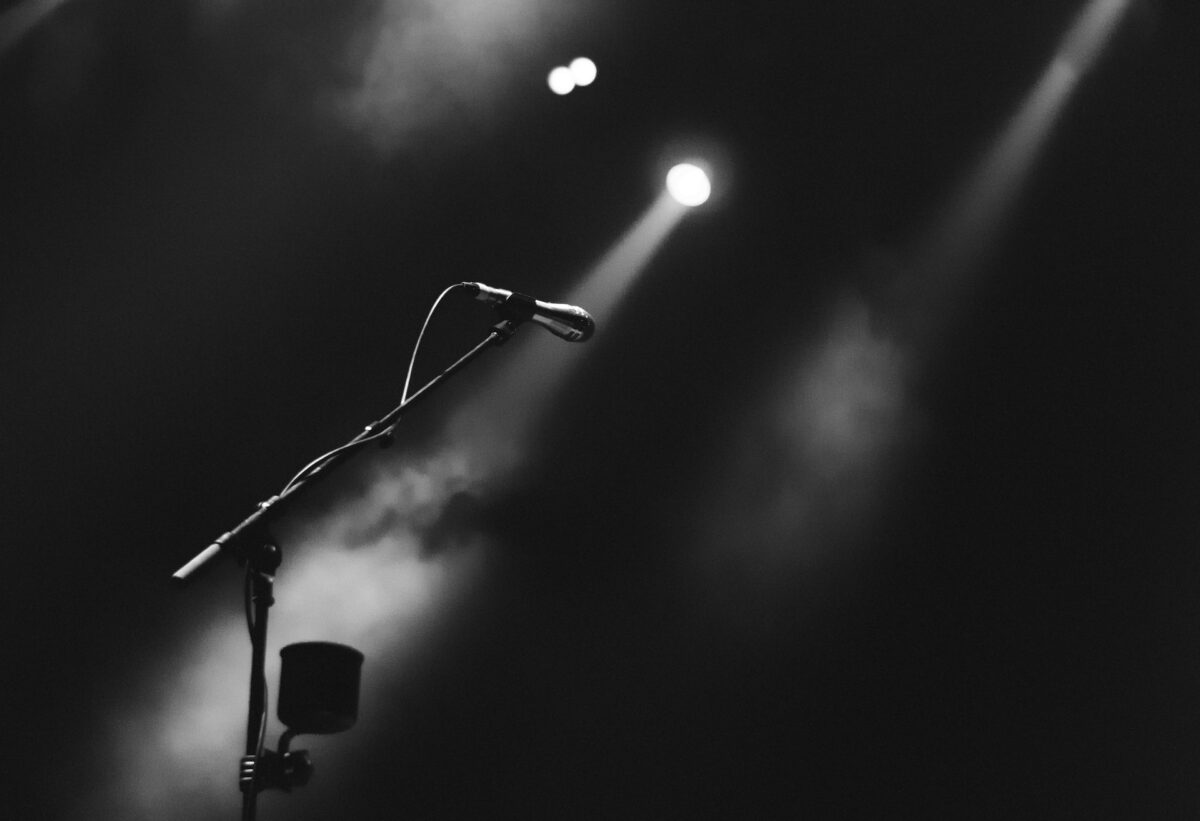With Hopscotch Festival right around the corner, I wanted to take some time to write about one of the bands headlining Moore Square on September 5th. That band goes by the unforgettable name of Godspeed You! Black Emperor.
Emerging in 1994 from the ever so fertile underground scene in Montreal, GY!BE has carved their own path when it comes to a defining genre. Personally, I would say they’re a mix of post-rock, noise-rock, and drone. Their music while being instrumental (with an occasional audio sample), is so powerful that it defies what you’d expect from protest music, which to me is fast, loud, explicit, etc. instead you get these bleak, ambient, honestly haunting melodies that sound like the entire world is coming to an abrupt fiery end.
Modern society isn’t the only thing they reject, they also reject the format of what you’d expect for a band to look like. The band consists of nine members with no distinct frontman. According to an interview conducted back in 1999, they had fifteen members at one point. In the beginning, they were a trio consisting of founding members Efrim Menuck (guitarist), Mike Moya (guitarist), and Mauro Pezzente (bassist), who are the only three to have stayed the same since the start. GY!BE’s lineup has changed considerably throughout the years but not for any particular reason. Members will join, contribute to the band’s craft and then move on.
According to Menuck, it wasn’t very difficult to be a part of the group: “It was like if anyone knew anybody who played an instrument and seemed like an okay person, they would sort of join up.” In a way, GY!BE is an orchestra rather than a band, with violins, cellos, two drum kits, multiple guitars, electric bass, upright bass, etc. that blend together to create tracks that regularly span over twenty minutes in length. More often than not, their tracks are quite progressive, starting off slowly and quietly then later build up more and more up until you get to these cathartic crescendos that just leave you in awe. When I found GY!BE’s music back in my freshman year of college, I listened to the track “Sleep” while sitting in my dorm room and I bursted into tears, a beautiful and defining experience in my musical journey.
Even though GY!BE’s music is primarily instrumental, it is a weapon used against capitalism, colonialism, war, state violence, etc. Through sound, album art, or the handmade extras and liners in their records or cd’s, they project a very prominent f*** you to modern capitalist society. With albums like “F#A#∞” (1997), “Lift Your Skinny Fists Like Antennas to Heaven” (2000) and “Yanqui U.X.O” (2002), hailed as manifestos that through nothing but sound illustrating both decay and hope.
Even their live performances feel like a protest, getting up on stage in complete silence, not saying a word to the crowd and performing in near to total darkness with multiple 16mm projectors displaying collages of their artworks, film loops of urban decay, police brutality, actual protests, etc. Their shows are an experience that is impactful and unforgettable. I look forward to experiencing this myself next week.
After the release of “Yanqui U.X.O,“ GY!BE went on a hiatus in 2003. Many thought that this was the end of the collective, but in 2010 the band would quietly reorganize and return stronger than ever releasing six projects since. Their most recent project was released last year, titled “NO TITLE AS OF 13 FEBRUARY 2024 28,340 DEAD” (2024), referencing the death toll at the time of Palestinians along the Gaza Strip. Within the past couple of weeks due to controversy with streaming services like Spotify, GY!BE has removed their music from all streaming platforms, leaving the only ways of listening to their music to physical copies, recorded performances, and Bandcamp.
GY!BE’s music is here in a world that is increasingly marked by surveillance, authoritarianism, climate collapse and so much more. Their music may not be for everyone but at the same time, that’s the whole point. It’s for those who look to feel less alone in their discomfort with the current state of the world and for those people, it is more than just music, it is a call to awareness, a cry of resistance, and a hope of change.
— DJ CJ

